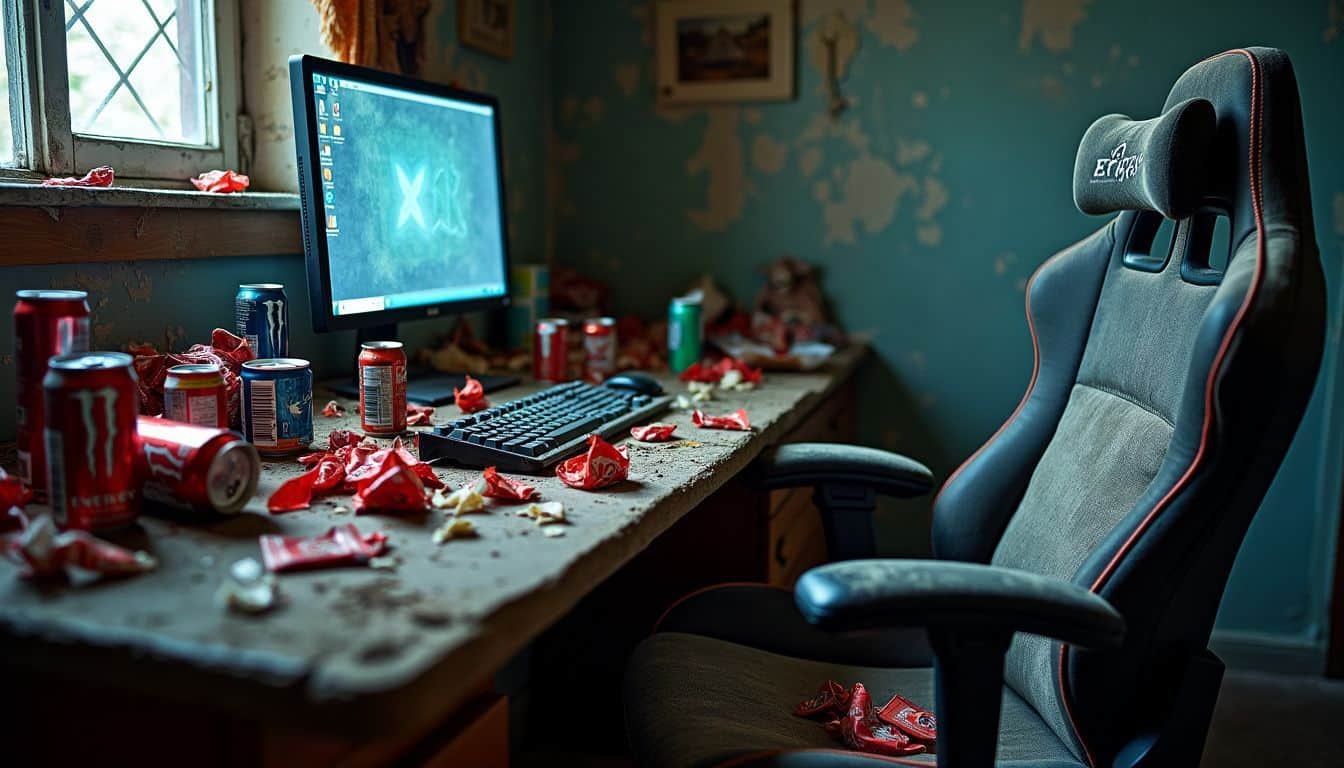Ever wonder why esports stars hang up their mouse and keyboard so young? It’s a head-scratcher for many fans. Did you know the average pro gamer in Overwatch League is just 20 years old? This article digs into the shocking reasons behind early retirement in competitive gaming.
Why do esports players retire so early? Let’s find out.
Key Takeaways
Esports pros face intense physical and mental strain, often practicing 12–14 hours a day, six days a week, leading to burnout and health issues.
Common health problems for gamers include wrist and back pain (42% of pros), eye fatigue (56%), and mental health challenges from constant pressure.
Pro gaming careers are short, typically 4–5 years, with peak performance occurring in late teens to early 20s.
Many retired pros find success in streaming, coaching, or starting businesses, like Shroud who’s now worth $16 million.
Young esports stars (often 16–18 years old) struggle with public criticism and high expectations, leading to early retirement due to stress and burnout.
Table of Contents
Physical and Mental Strain in Esports
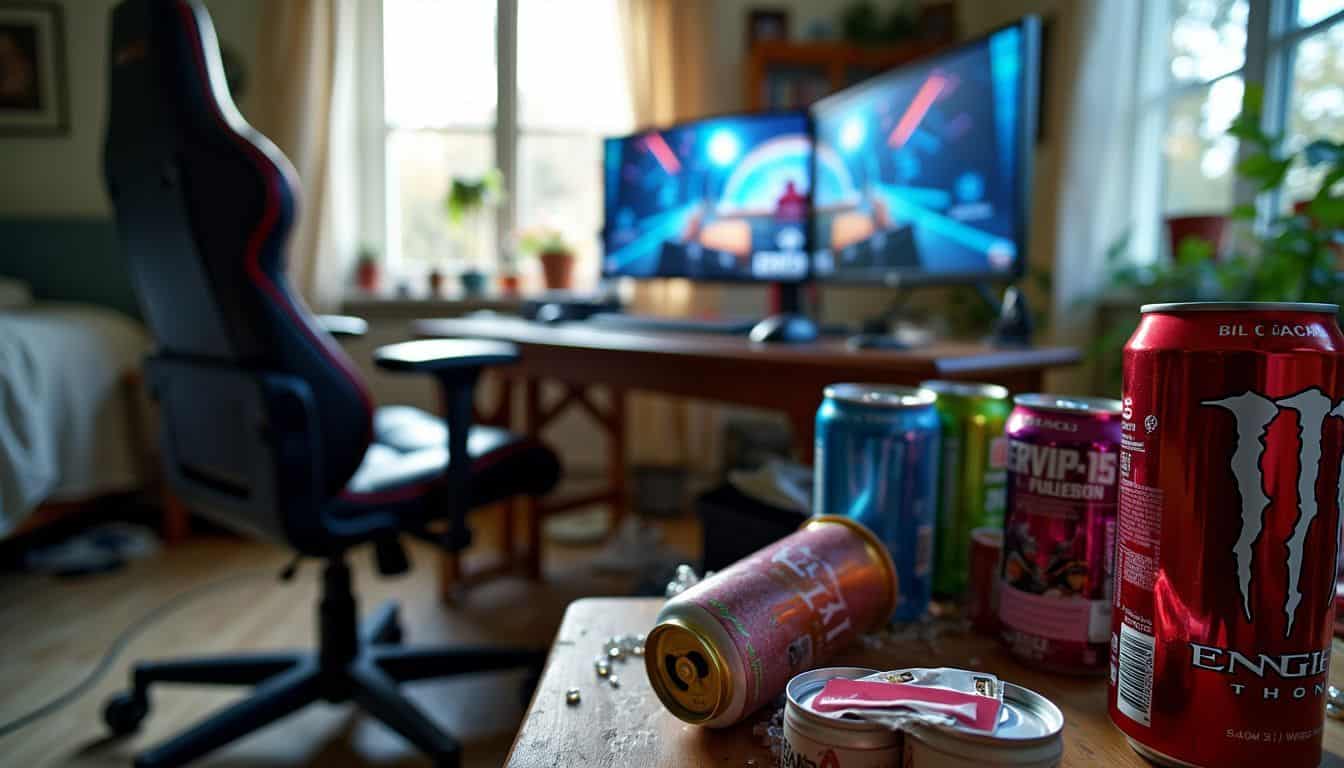
Esports players push their bodies and minds to the limit. Long hours of practice and high-stress competitions take a heavy toll on these young athletes.
Grueling training routines
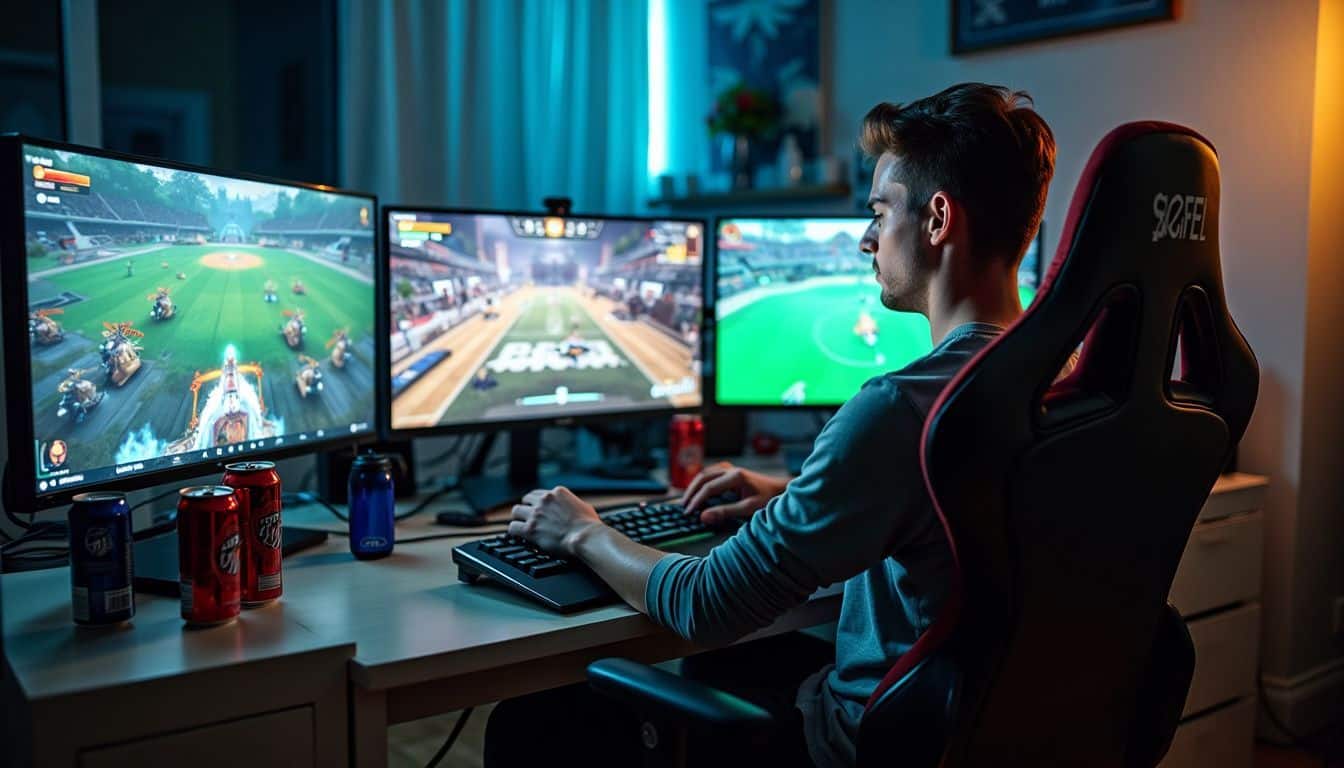
Esports pros take practice seriously. They work intensely – often 12 to 14 hours a day, six days a week. It’s far from a typical 9-to-5 job! These gamers dedicate themselves to their craft in shared houses, pushing their limits.
It’s like an ongoing LAN party, but with much more at stake.
This intense schedule has its drawbacks. Brandon “Seagull” Larned, a former Overwatch pro, revealed the tough 70-80 hour practice weeks. No surprise burnout affects these players significantly.
We’re always working. It’s eat, sleep, game, repeat. – Anonymous pro gamer
Like traditional athletes, excessive training can harm a gamer’s physical and mental health. The constant drive for excellence in games like League of Legends or Call of Duty can exhaust even the most resilient players.
Mental fatigue from continuous competition
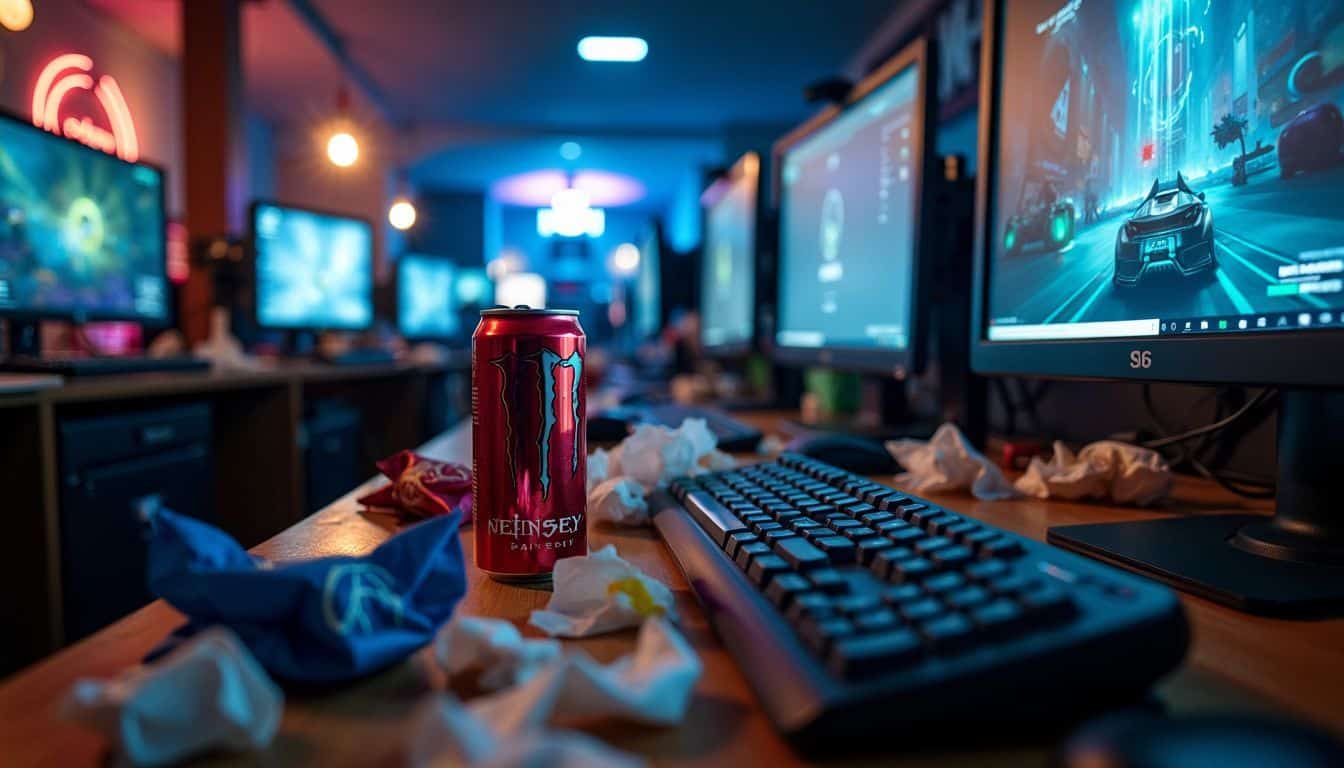
Grueling training routines take a toll, but mental fatigue hits even harder. Pro gamers face non-stop pressure in the esports world. They’re always “on,” battling it out in high-stakes matches.
This constant grind wears them down fast.
Think about it: these players are in the hot seat for hours each day. They must stay razor-sharp and make split-second choices. It’s like a mental marathon with no finish line. Up to 50% of a player’s edge comes from their mindset.
But keeping that edge is tough. Many pros burn out from anxiety and stress. It’s no wonder some turn to GGBet bonuses to unwind. The mental strain in esports mirrors what we see in regular sports.
Players often feel drained, leading to early retirement from the game they once loved.
Common Health Issues Among Esports Professionals
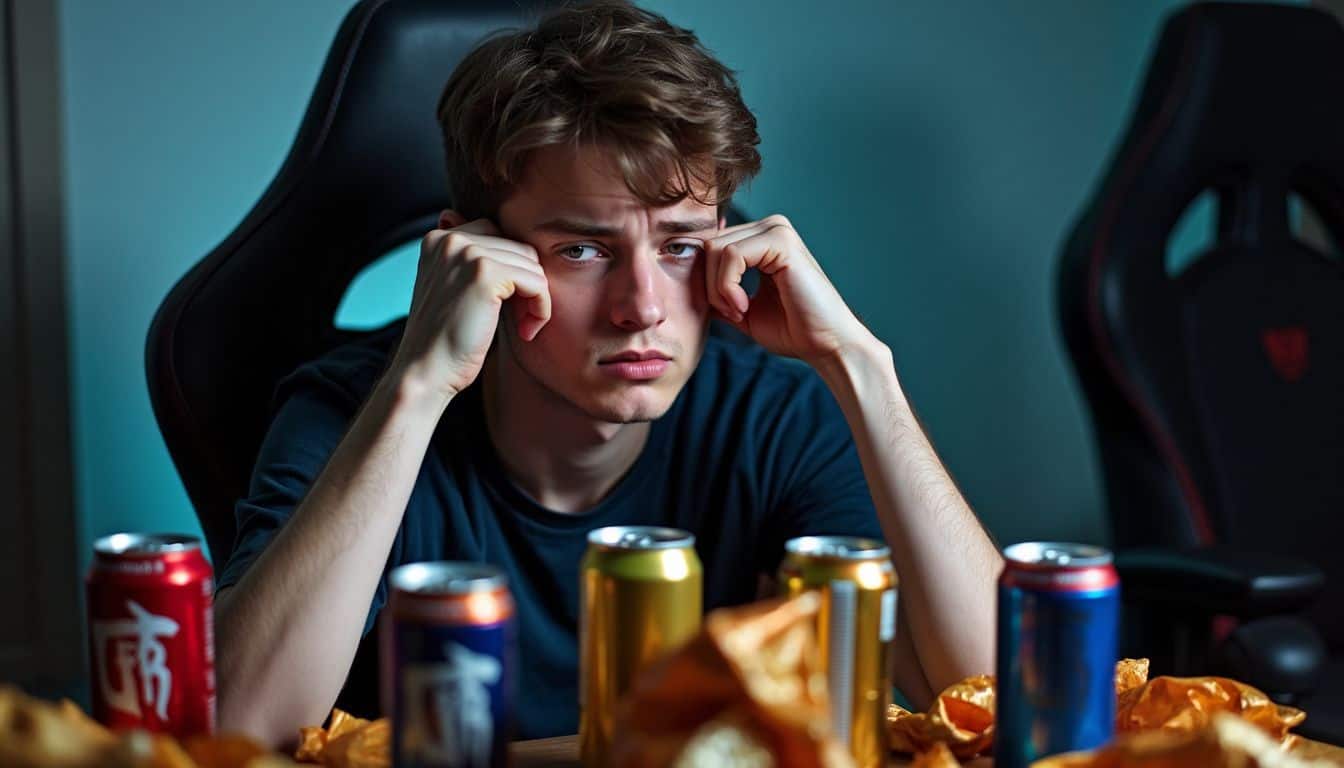
Esports pros face a tough battle off-screen. Their bodies take a beating from long hours of gaming, leading to some nasty health issues.
Wrist and back problems
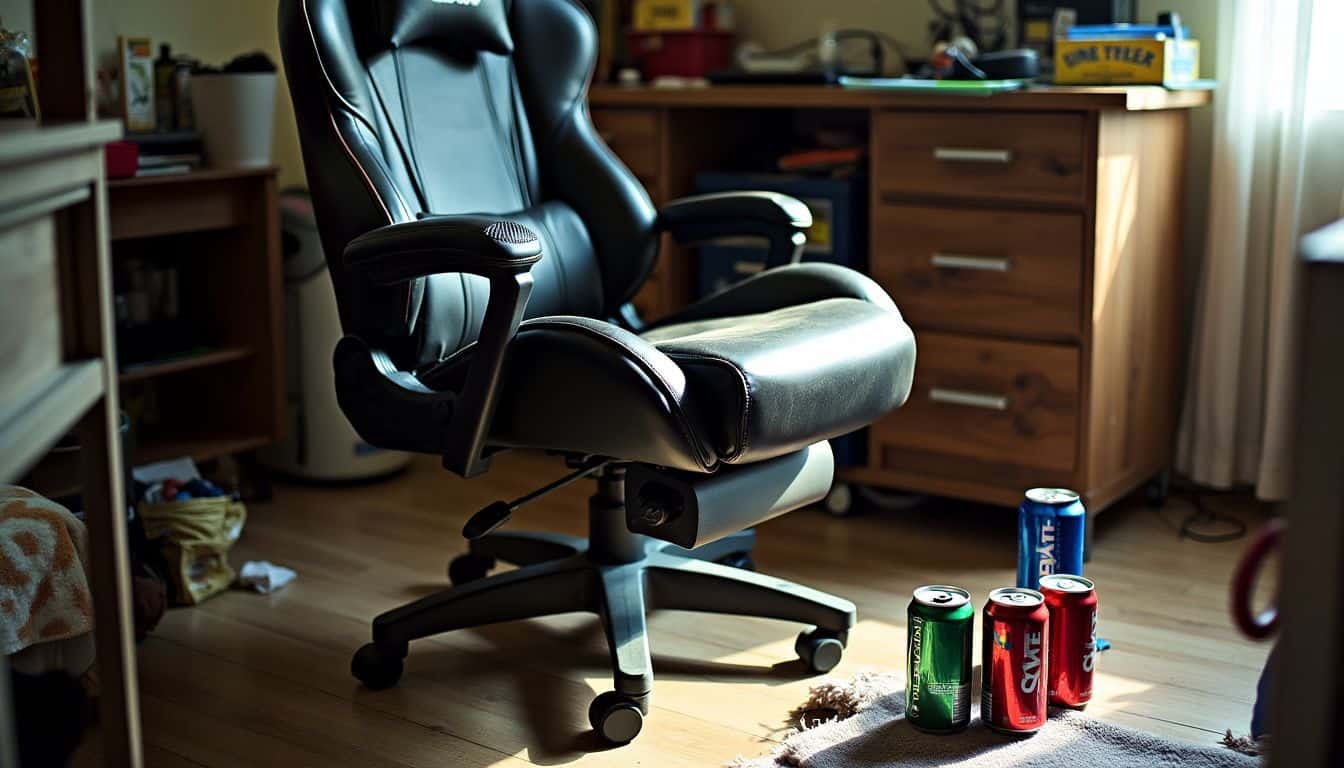
Gamers, listen up! Wrist and back pain are no joke in the digital sport world. A whopping 42% of esports pros deal with these aches daily.
It’s like having a boss battle with your own body! I’ve seen teammates quit due to chronic wrist issues. Carpal tunnel syndrome and tendinopathies are the final bosses many can’t beat.
Here’s the kicker – only 2% of players with these problems get medical help. That’s nuts! It’s like trying to win a tournament with a broken controller. Trust me, I’ve been there. My wrists used to feel like they were on fire after long practice sessions.
Pro tip: Don’t ignore the pain, folks. It could end your career faster than a rage-quit.
Your body is your most important gaming gear. Take care of it! – Anonymous Pro Gamer
Effects on eye health from prolonged screen time
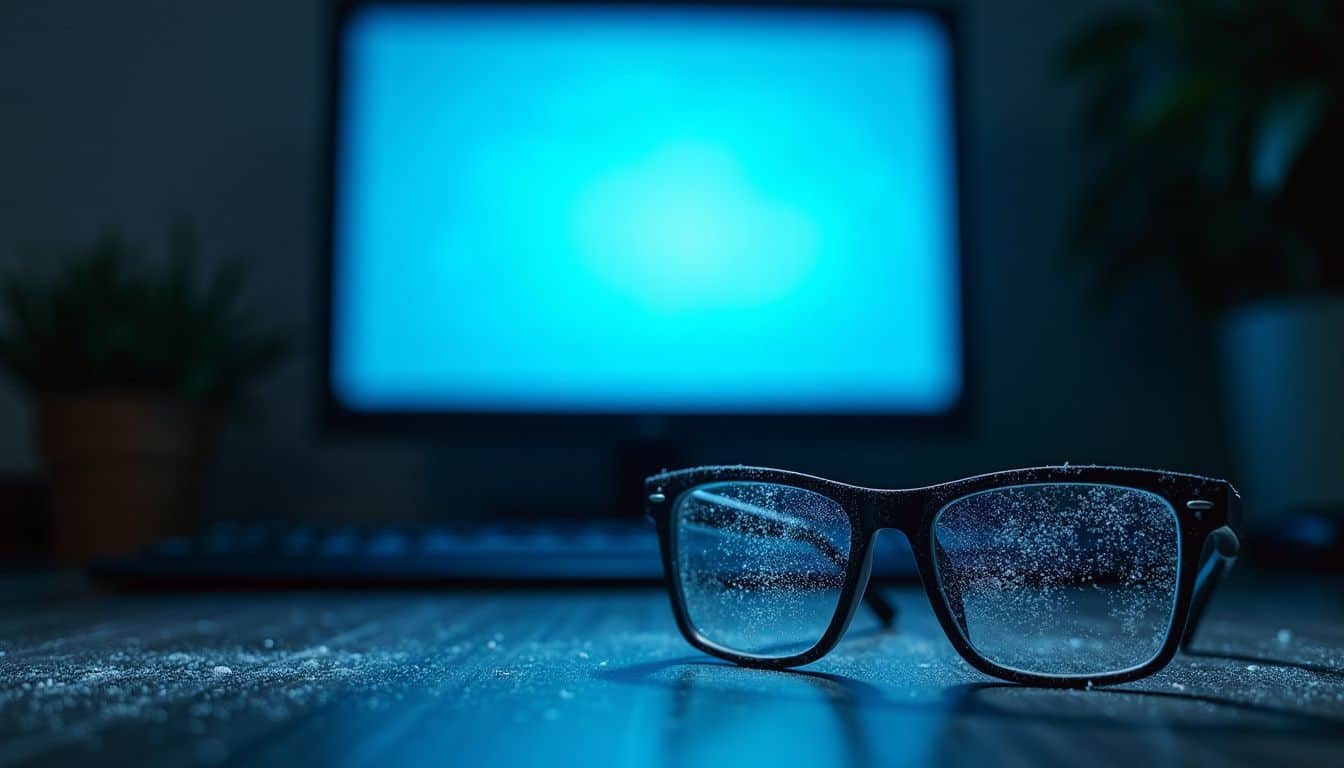
Staring at screens for hours on end takes a toll on esports pros’ eyes. A whopping 56% of these gamers report eye fatigue. It’s no joke – blurred vision is a common complaint. Dr. Zwibel, who studies this issue, points out that eye strain is a big health risk for these players.
The constant focus on bright screens can lead to a host of vision problems.
Pro gamers often face more than just tired eyes. Their eyes can get dry, itchy, and even start to burn after long gaming sessions. Some players even report headaches or neck pain from squinting at screens all day.
It’s a real challenge for these digital athletes. They need to keep their eyes in top shape to stay competitive. But the demands of their job make that tough. It’s a classic catch-22 situation for esports players.
Economic and Professional Factors Influencing Early Retirement
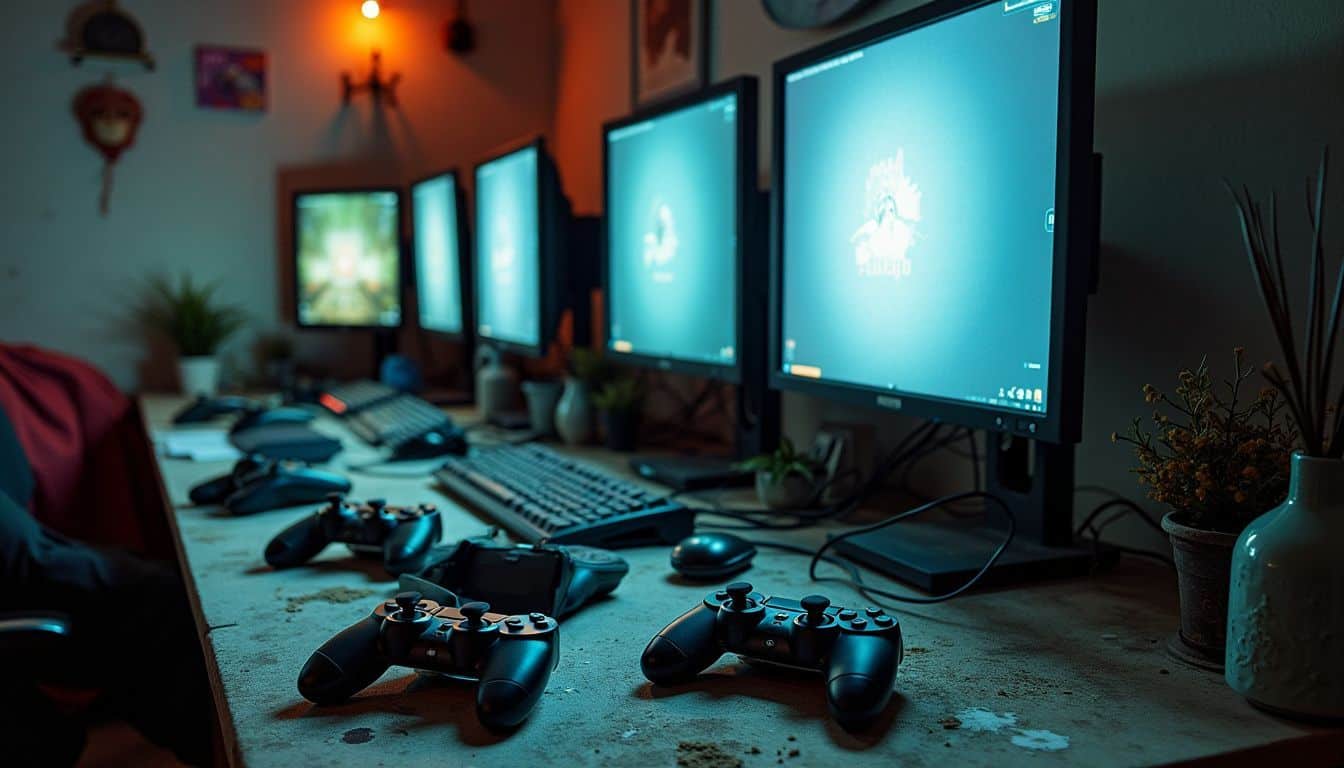
Money talks in esports, and it talks fast. Pro gamers often face a short window to cash in big before their skills start to slip.
Limited years of peak performance

Esports stars shine bright but fade fast. Most pro gamers hit their peak in their late teens to early 20s. By 25, many start to lose their edge. Dr. Todd Sontag points out that eye-hand coordination begins to slip around this age.
It’s a cruel twist for these digital athletes.
Peak performance in esports is fleeting. The average pro career lasts just 4–5 years. That’s a blink compared to traditional sports. Faker, the League of Legends legend, is an outlier at 26.
Most hang up their mouse and keyboard long before. The grind is real – 12 to 16 hours of daily practice takes its toll. Bodies and minds wear down fast in this high-stress world.
Attractive alternatives beyond competitive playing

Pro gamers have exciting options after they hang up their keyboards. Streaming has become a gold mine for many. Top streamers can rake in over $15,000 per hour! That’s some serious cash.
Take Shroud, for example. After retiring from pro play, he switched to streaming. Now he’s worth a cool $16 million. Not too shabby!
But it’s not just about streaming. Many ex-pros dive into business ventures. Johnathan “Fatal1ty” Wendel and Dennis “Thresh” Fong did just that. They used their gaming smarts to build successful companies.
Some former players become coaches or team owners. Others create content on YouTube or start podcasts. The skills they learned as pros – quick thinking, teamwork, strategy – come in handy in these new roles.
Cultural and Social Pressures in the Esports Arena
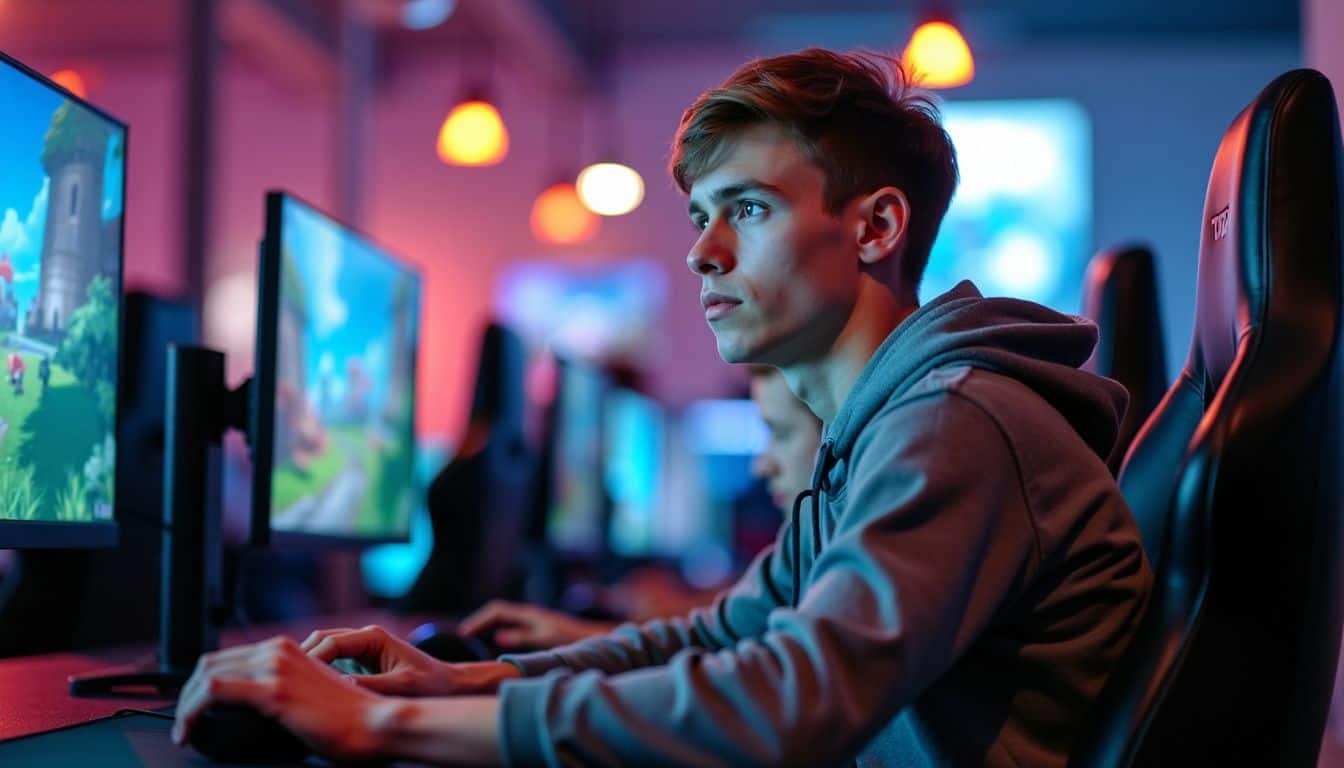
Esports pros face crazy pressure from fans and haters alike. It’s tough to stay cool when millions watch your every move online…and offline.
Early career pressures and expectations

Esports pros face huge pressures right from the start. Most go pro between 16 and 18 years old. That’s super young! Imagine being thrust into the spotlight as a teen. You’re expected to perform at top levels against the world’s best gamers.
It’s not just about playing video games anymore. These kids deal with intense training, travel, and public scrutiny. They often miss out on normal teen experiences.
The stakes are sky-high in pro gaming. One bad match can tank a career. Fans and team owners demand constant wins. Players feel the heat to stay on top. Many burn out fast from the stress.
Some struggle to balance gaming and personal life. Others can’t handle the pressure of competing in huge esports arenas.
It’s a tough world for young pros. As a former pro gamer myself, I’ve felt this firsthand. > “The pressure to perform perfectly every single day is immense. It’s like walking a tightrope without a safety net,” says Brandon “Seagull” Larned, a retired Overwatch pro.
Challenges of dealing with public criticism
Public criticism hits esports pros hard. Fans and haters alike blast players on social media 24/7. It’s tough to ignore the noise when your every move is under a microscope. Pro gamers face harsh words about their skills, looks, and personal lives.
This constant barrage can wear down even the toughest players.
Dealing with critics isn’t easy for young esports stars. Many lack the tools to handle hate. Some turn to unhealthy coping methods like drinking or isolating themselves. Others struggle with anxiety or depression from the pressure.
It’s no wonder many pros burn out fast and quit early. The mental toll of public scrutiny often outweighs the thrill of competing.
Career Paths Post-Esports

Esports pros don’t just fade away after hanging up their mice and keyboards. Many find new ways to stay in the game… literally! They become coaches, streamers, or even start their own gaming companies.
It’s like leveling up in real life!
Opportunities in coaching, content creation, and entrepreneurship
Retired esports pros have tons of options after hanging up their keyboards. Many jump into coaching, sharing their skills with up-and-coming players. Others dive into content creation, building huge followings on Twitch and YouTube.
Take Shroud, for example. He left pro gaming and now rakes in millions as a streamer. It’s not just about playing games anymore – these folks are building brands and businesses.
Some ex-pros even start their own companies. Dennis “Thresh” Fong sold his startup for over $100 million! That’s no chump change. From team ownership to game design, the possibilities are endless.
These gamers are proving they’ve got skills beyond quick reflexes. They’re turning their passion into long-term careers, showing that esports can be more than just a short-lived dream.
Exploring academic and personal growth avenues
Beyond the gaming world, retired esports pros have many chances to grow. Some hit the books and go back to school. They pick up new skills or finish degrees they put on hold. This move helps them branch out and find fresh career paths.
It’s not just about getting a diploma, though. These players often learn life skills they missed while gaming full-time.
Personal growth is huge for ex-pros too. Many start new hobbies or travel the world. They focus on health, both mental and physical. Some even become public speakers, sharing their unique experiences.
This growth period lets them explore interests they couldn’t while competing. It’s a time to find balance and build a life outside of gaming. For many, it’s a welcome change from the intense esports grind.
People Also Ask
What’s the average retirement age for esports players?
Most pro gamers hang up their mice and keyboards way earlier than traditional athletes. While football players might play into their 30s, many esports stars call it quits before 25. It’s like they’re sprinting through their careers!
How does hand-eye coordination affect an esports player’s career?
As quick as a cat, esports pros need lightning-fast reflexes. But as they age, their hand-eye coordination slows down. It’s like trying to catch flies with chopsticks – it gets harder with time. This often pushes them towards early retirement.
Why do some esports players become content creators?
When the competitive fire dims, many pros turn to streaming platforms. Take Tyler “Ninja” Blevins or Michael Grzesiek – they’ve found new life as Twitch stars. It’s like trading in their battle armor for a comfy streaming chair.
How does the Call of Duty League impact player longevity?
The Call of Duty League is a pressure cooker. Teams like Florida Mayhem demand peak performance. This high-stress environment can burn players out faster than a match of Shipment. It’s no wonder some seek early exits.
What role does ergonomics play in esports careers?
Poor posture is the silent killer of esports careers. Without proper ergonomics, players risk injuries like Tommy John surgery. It’s as if their bodies are rebelling against endless hours of gaming. This physical toll often leads to early retirement.
References
https://www.cbsnews.com/news/esports-burnout-in-video-gaming-cbsn-originals/ (2018-12-21)
https://www.washingtonpost.com/video-games/esports/2022/04/19/esports-age-retirement/ (2022-04-19)
https://www.ncbi.nlm.nih.gov/pmc/articles/PMC8188925/
https://findado.osteopathic.org/esports-athletes-at-risk-for-serious-health-issues
https://globalsportmatters.com/health/2019/09/25/esports-players-need-to-manage-eye-strain-blue-light-exposure/ (2019-09-25)
https://esportslane.com/esports-gamer-career-length/
https://clutchpoints.com/retirement-in-esports-why-do-esports-players-retire-so-early (2020-11-10)
